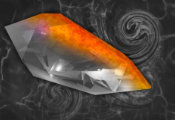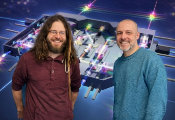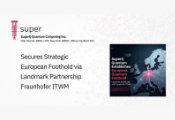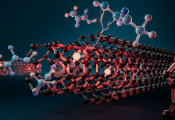Quantum Elements Launches AI-Native Platform for Quantum Software and Hardware Development
LOS ANGELES, October 22, 2025 -- Quantum Elements, a Los Angeles-based quantum software start-up funded by QDNL Participations and USC Viterbi School of Engineering, today emerged from stealth and announced the launch of its AI-native quantum development platform to make fault-tolerant quantum computing more cost-effective, time-efficient and accessible, accelerating the path to valuable, real-world solutions.
In what is the first quantum software development platform on the market built with AI integration at its core, Quantum Elements’ Constellation platform uses agentic AI, natural language prompts and a proprietary simulation back-end to develop large-scale simulation-driven machine learning models, generate code, debug and run quantum applications. As a result, users can more easily develop quantum solutions across pharma, energy, finance and other sectors today.
The hardware-specific, universal software also supports the largest and most advanced noisy-qubit simulator to date, allowing users to prototype quantum systems prior to purchasing hardware access, removing financial barriers for start-up companies and academics alike. In addition, users can pause and analyze errors with the simulator – unlike with physical quantum systems where programs can’t be paused in real time – to optimize their applications to particular hardware.
One of the first quantum start-ups based in the Los Angeles area, Quantum Elements was co-founded in 2023 by CEO Izhar Medalsy, Ph.D., a serial entrepreneur with years of technology and business experience; Chief Scientific Officer Prof. Daniel Lidar, University of Southern California (USC), the director and co-founder of the USC Center for Quantum Information Science & Technology; and Prof. Amir Yacoby, Harvard, member of the National Academy of Sciences.
The company has already built partnerships with top quantum companies such as Amazon and Rigetti, as well as academic partners like USC and UCLA.
“With our AI-powered platform, what took engineers weeks to calibrate, analyze or program in the past is now doable in mere hours,” Izhar said. “Paired with our state-of-the-art hardware specific quantum simulator, users can now simulate quantum computer prototypes and applications to gain confidence and then invest in access to quantum hardware.”
“In classical computing, it has become apparent that engineers who don’t use AI-native coding tools like Cursor or Copilot risk being left behind,” said Kris Kaczmarek, Investment Director at QDNL Participations. “We expect the same will happen with quantum computers and strongly believe Quantum Elements’ Constellation will become the dominant tool for developing quantum applications.”
“Congratulations to Quantum Elements on this exciting moment,” commented Dr. Subodh Kulkarni, CEO of Rigetti Computing. “Since joining Rigetti’s Novera QPU Partner Program last year, we’ve had the opportunity to deepen our partnership with Quantum Elements to leverage their AI-powered tools in support of our engineering. Quantum Elements have demonstrated deep insights in modeling superconducting qubit systems to improve gate fidelity and we’re looking forward to the quantum error correction improvements their tools can enable.”
“We’re excited to see Quantum Elements launch their platform, building useful tools for quantum computing and expanding what’s possible with our OPX1000 controller and QUA language,” said Dr. Itamar Sivan, Co-founder and CEO of Quantum Machines.




































